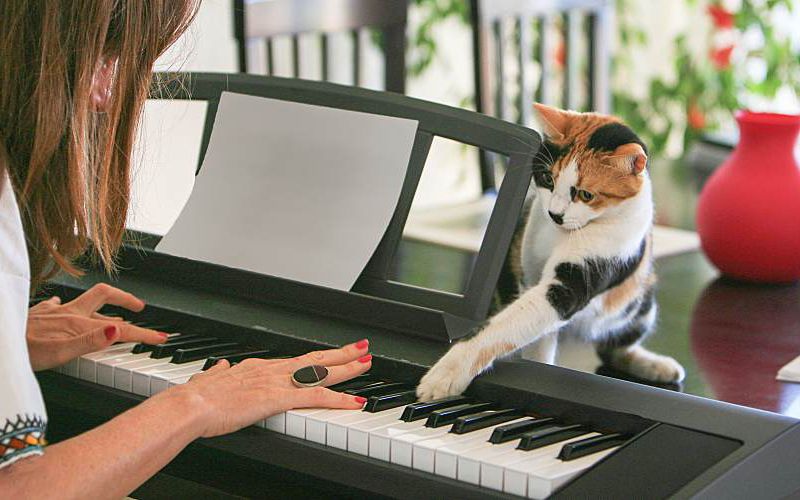Making Your Practice Stand Out in a Saturated Market, Part 2: Communication Tips


The key to becoming an all-star veterinary practice that stands out in a saturated market lies in coaching your team so they may rock their roles. Think, again, of your practice like a band: your veterinarians are the lead singers, your support staff are the bandmates, your communication is the songs, your practice culture is the stage performance, and your clients are the audience.
(If you missed part 1, read it here.)
With that in mind, it's critical that you consider the "song" and the "stage performance" you're presenting at your practice. Here are some tips for navigating communication and practice culture to top the charts in your community.
3 Ways Neo Veterinary Software Can Give Time Back to Busy Veterinary Teams. [Read the article.]
The Perfect Song: Your Communication
Communication, like any well-written song, has many layers. The words your staff speak are significant and should be well thought out and accurate. However, their tone, actions, and nonverbal cues are just as important to ensure your staff is communicating in a way your clients understand and appreciate.
- Grateful greeting: From the first phone call, make sure to greet them in a friendly manner and express gratitude that they chose your practice among their other options. Train your staff to answer the phone with a greeting like this: "Thank you for choosing ABC Practice. This is Jane; how may I help you today?" From the client's first contact, you are showing your appreciation for their business.
- Body language: Teach staff members to be aware of their body language while interacting with a client. Facing the client fully, smiling when appropriate, playing with the patient, and maintaining eye contact are examples of positive nonverbal interactions that go a long way to creating harmony between the practice and your clients.
- PIMS: Having a practice information management system that allows your practice to link call-backs with invoice items is a must. The right PIMS will create a list of calls to make or actions for your staff to complete. Clients will have the opportunity to express how their pet responds to treatments, vaccines, or products. If clients say they were happy with the visit, this is the perfect opportunity for your staff to ask them to leave a review on Google or social media.
- Sympathy: Euthanasia is an unavoidable reality in veterinary medicine. Practices that take the time to send out sympathy cards during these difficult times can develop strong relationships with clients. Have each staff member and doctor who worked with the patient sign a quick note to the card. Although this routine may take a little extra time, it often furthers the practice/client bond and engenders loyalty from your clients.
Practices that employ these communication strategies will be able to differentiate themselves and deliver messages that resonate with clients.

The Stage Performance: Your Practice Culture
When you think of practice culture, you might first think about the physical work environment. However, viewing practice culture as a much bigger picture that incorporates all the band members — and the audience — can help your practice stand out in a saturated market. Here's how to bring the entire band together to deliver a chart-topping performance.
- Dependability: Dependability is essential in all aspects of your practice. Being there for clients when they need you will develop a deep loyalty with your base and with new clients. Knowing they can depend on your doctors and staff to provide the highest level of medical care and customer service is priceless. When your clients know that you will be there for them in a time of need, they are more likely to be patient if they have to wait due to emergencies, knowing that they too could be in that position one day.
- Fun: Create a positive, fun, and family-like work environment that your staff can depend on. Being able to laugh and have some fun during the day is a huge stress reliever and can also be an effective way to reset minds and attitudes.
- Client notes: Enfold your clients into your inclusive practice culture by making notes on their interests or family, such as their favorite college team or their child's name. This way, you can mention these items at their next visit, and the client will feel cared for and valued.
- Appreciation: You depend on your staff to be on time, knowledgeable, and ready for their shift. Treat your doctors and staff to an unexpected lunch or coffee break to show your appreciation. Little gestures can go a long way to creating harmony in your practice. Also, compliment your staff when they perform well, whether placing an IV catheter on a difficult patient or communicating and relating well to that problematic client at the front desk. Both are examples worthy of praise, and these small gestures help your staff feel appreciated and respected.
- Constructive feedback: Although it is important to give praise when deserved, it's also essential to identify and confront problems when they arise. Your band needs to know that if they play well, they will be applauded — but if they are "off-key," they will also be made aware of that, as well. So, it's important to follow up with appropriate training and performance evaluation to make sure they're playing their best.
Communication is the heart of the practice, just as the song is the heart of the band's performance. And having a practice culture that is positive, appreciative, and constructive sets the stage for success. Just remember, no matter how well your band is playing, it's still hard work, so make sure to reward your team when you can and have some fun in between sets.






